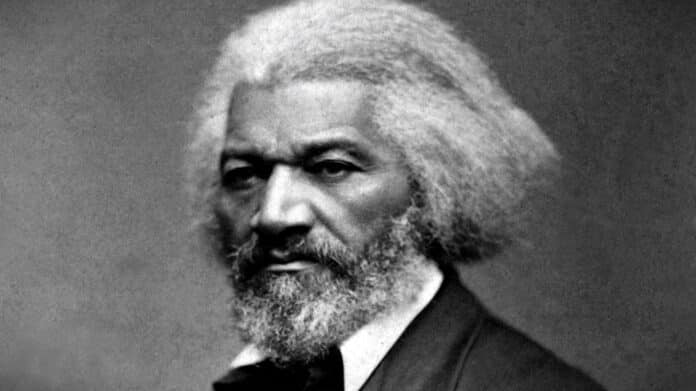
By Andrew Evans aka The Pickleball Librarian
I often find myself making the short drive over to Douglas County. It’s a fantastic spot for a quick getaway—whether it’s visiting museums, catching live music, enjoying a great meal, or hiking the scenic trails. Many of you reading this probably agree. But today, I want to propose a small yet meaningful change—adding an extra “S” to Douglas.
No, it’s not for “special,” although Douglas County certainly is. And it’s not for anything unkind. It’s for someone truly worthy of the honor: Frederick Douglass.
Douglas County is named after Stephen A. Douglas, a U.S. senator from Illinois. While he publicly claimed to oppose slavery, he also championed the idea that new states should have the right to choose whether to allow it. This policy, known as popular sovereignty, led to violent conflicts and deepened the nation’s divide. More troubling, Douglas himself had financial ties to slavery—his wife inherited a Mississippi plantation that enslaved over 100 people, and some of the wealth generated from that plantation helped fund his political career.
Now, imagine if the county instead honored someone who stood firmly against slavery and worked tirelessly for justice. Someone like Frederick Douglass.
Frederick Douglass was more than just one of the greatest African Americans in history—he was one of the greatest Americans, period. Born into slavery, he escaped and became a leading voice in the abolitionist movement. His writings and speeches were powerful forces for change, and his influence extended to leaders at the highest levels.
He played a key role in shaping President Abraham Lincoln’s evolving stance on slavery. Douglass pushed Lincoln to make abolition a priority, ultimately helping to bring about the end of slavery while preserving the Union.
Douglass also had strong ties to Kansas. He was a close ally of abolitionist John Brown and supported women’s suffrage, working alongside Elizabeth Cady Stanton and Susan B. Anthony—both of whom campaigned in Kansas. In fact, Kansas was the first state to hold a referendum on women’s suffrage, helping spark momentum for change across the country.
Lawrence is often called “LFK” because it has a bold, vibrant spirit. Imagine making Douglas County even more remarkable by renaming it Douglass County—an intentional tribute to a true champion of justice.
Picture this: visitors arriving and hearing, “Welcome to Douglass County! We’re named after one of the greatest Americans in history.” It would be a powerful statement about the values the community stands for.
History isn’t just about where we’ve been—it’s about where we’re going. And this small change would be a big step toward honoring the right legacy.
Sources:
Peck, Graham A. (2005). “Was Stephen A. Douglas Antislavery”. Journal of the Abraham Lincoln Association, 26 (2): 1–21.
Read Here
Gannett, Henry (1905). The Origin of Certain Place Names in the United States. Govt. Print. Off. p. 108.
Read Here
Oration by Frederick Douglass in memory of Abraham Lincoln, delivered at the unveiling of the Freedmen’s Monument in Lincoln Park, Washington, D.C., April 14, 1876.
Read Here
Letter written by John Brown and Frederick Douglass to Brown’s wife and children.
Read Here



